Ukrainians Will Also Be Watching Tonight’s Presidential Debate Anxiously
With Republicans divided over the issue of continuing military support for Ukraine, Democrats have had little to say on the issue. But tonight’s confrontation could change that.

Late last month, the United States announced its package of military aid to Ukraine: $125 million of equipment ranging from drones to air defense systems—a vital infusion as Russia continues to pummel the country with missiles, causing mass civilian casualties.
The US has sent billions of dollars to Ukraine since Russia’s invasion began in February 2022. But whether that aid will continue to flow during the campaign season or after the next president takes office is up in the air. Republican candidate Donald Trump has threatened to pull the plug on aid completely in his promise to “end” the war, while Democratic nominee Kamala Harris hasn’t outlined her policy yet regarding Ukraine.
Though she hasn’t mentioned specifics, Harris is widely expected to continue President Joe Biden’s supportive stance. A presidential drawdown authority was used to send the $125 package to Ukraine, allowing the government to use stockpiles straight from the Pentagon. After the package was announced, Secretary of Defense Lloyd Austin said the US “will not waiver in our support for a free and sovereign Ukraine.”
In an interview with The Nation, Mykhailo Podolyak, an adviser to Ukraine President Volodymyr Zelensky, said he is confident that both Harris and Trump understand the importance of supporting Ukraine. “I have no doubt in my mind that both Republican and Democratic candidates have a clear understanding of the times we live in, the risks we face, and what true global leadership is,” Podolyak said. “I am absolutely sure that both Ms. Harris and Mr. Trump understand their future leadership roles, their personal responsibilities, and the true motives of leaders of different countries, especially those prone to primitive authoritarianism like Russia.”
Yet there remain questions about what the election and the heat of the campaign might mean for future aid prospects, and neither presidential candidate has made clear how they’re going to deal with the issue.
“Many of the same officials will still be in office [under Harris],” Mark Cancian, senior adviser at the Center for Strategic and International Studies, a Washington think tank, told The Nation. “Over time, as new officials take office and Harris becomes comfortable setting her own policies, some of the Democratic Party’s progressive wing’s skepticism of aid may creep in.”
Harris barely mentioned Ukraine during the Democratic National Convention, leaving advocates disappointed, particularly given the convention’s location in Chicago, a city with a large Ukrainian population, according to the Kyiv Independent. Representative Adam Smith of the House Armed Services Committee told the Independent that the issue of Ukraine likely won’t move the needle during the presidential race. “People vote based on local issues, Americans have never been that focused on foreign policy and national security policy,” he said.
Daniel Balson, director of public engagement at Razom, a Ukrainian advocacy group, was also at the Democratic convention. In an interview with The Nation, he said that many people there were interested in having conversations about Ukraine. “We shared with Democrats how there are so many intersections between Ukraine and issues they care about,” like Ukraine’s approach to LGBTQ inclusion and the environmental disaster caused by Russia’s destruction of the Nova Kakhovka dam, which caused devastating flooding in the country’s southern Kherson region. “There was a lot of support and empathy. Ukraine is certainly a subject resonates with Democratic voters.”
A Gallup poll in April found that an increasing number of Americans want more US aid to go to Ukraine, but voters were still split overall. A Quinnipiac poll released last week indicates that Ukraine may not be a high priority among voters—respondents ranked Ukraine last among 11 issues as being extremely important to their vote for president, beneath the economy, inflation, and Israel’s invasion of Gaza.
Despite the billions of dollars already sent, getting Ukraine aid packages through Congress has been a slow process. Some Republicans have spoken against continued aid, and House Speaker Mike Johnson got called out by his colleagues for pushing through a $60 billion package in April.
But Balson noted that congressional Republicans who supported the aid package won their primaries. “One of the important lessons we learned from the last aid package is that opponents kept saying Republican supporters would be punished at the polls, but that’s not what we’ve seen happen,” Balson said.
Congress might not face another vote on sending aid to Ukraine before the election—the timing partly depends on what happens on the ground. The situation has become particularly volatile in recent weeks, with Ukraine’s push into Russia’s Kursk region and the Kremlin’s retaliatory missile and drone attacks across Ukraine, including an attack that left dozens dead.
“The Department of Defense Comptroller has indicated that the Biden administration might propose another aid package during the lame-duck session,” Cancian said. “I suspect that will happen only if Trump wins. If Harris wins, the administration will likely wait until after the transition. By my calculations, the current funding will last into the spring because it was passed so late.”
Last week, Trump accused Harris of wanting to lead America into a third world war, and he has claimed he could end the war in one day, which could only (maybe) be done by cutting off American aid completely—or by somehow forcing through a deal where Ukraine surrenders. He met with advisers last month who reportedly gave him a plan to threaten to revoke aid for Ukraine if Kyiv doesn’t meet with Moscow for peace talks. Meanwhile, Trump’s vice-presidential nominee, JD Vance, has said in the past, “I don’t really care what happens to Ukraine.”
Two years ago in Ukraine, I spoke to members of the military who expressed need for everything from tourniquets to artillery shells to tanks to surface-to-air missile systems—and, particularly, the powerful M142 High Mobility Artillery Rocket System (HIMARS) multiple rocket launchers. More than 40 HIMARS were included in last month’s drawdown assistance package.
Casualties have continued to mount, however—especially with Russia escalating its attacks on civilian infrastructure. Russia recently fired at least 127 missiles and 109 drones in an eight-hour-long attack across Ukraine. At the beginning of this month, some 47 people, including five children, were injured when Russian missiles struck a shopping mall and events complex in the northeastern city of Kharkiv. The next day, a barrage of missiles rocked the capital of Kyiv, with one hitting a mosque. Then, on Tuesday, Russian missile strikes on a military college and a hospital in Poltava killed more than 50 people in one of the deadliest attacks of the war. Last Wednesday saw an attack in Lviv—western Ukraine, far from the front line—that killed a woman and her three young daughters.
According to a report released last month by the Office of the United Nations High Commissioner for Human Rights, civilian deaths in Ukraine have been trending up since March this year, with at least 219 civilians killed in July alone—the costliest month for civilians since October 2022.
As on other issues, Trump’s precise position on aid to Ukraine remains ambiguous. “On the one hand, he initiated lethal weapon support to Ukraine, overturning an Obama administration policy,” said Cancian. “He allowed Republicans in Congress to vote on supplemental aid, allowing that package could go forward. On the other hand, he has said he would end the war in 24 hours by pressuring both sides for a ceasefire. That would be a partial Putin victory, since Russia occupies about 18 percent of Ukraine.”
Popular
“swipe left below to view more authors”Swipe →Both Cancian and Balson said that tonight’s debate could clarify the proposals Harris and Trump may have for Ukraine. Podolyak expressed confidence in both candidates to be supportive of Ukraine, and said he hopes the issue takes more of the center stage.
“Ms. Harris’s consistency and understanding of the situation is beyond question today,” Podolyak said. “Similarly, there is no doubt that Mr. Trump also clearly understands what the current crisis is and what fair solutions are needed to preserve global rules.… Obviously, I would personally like to see more attention to my country.”
Support independent journalism that exposes oligarchs and profiteers
Donald Trump’s cruel and chaotic second term is just getting started. In his first month back in office, Trump and his lackey Elon Musk (or is it the other way around?) have proven that nothing is safe from sacrifice at the altar of unchecked power and riches.
Only robust independent journalism can cut through the noise and offer clear-eyed reporting and analysis based on principle and conscience. That’s what The Nation has done for 160 years and that’s what we’re doing now.
Our independent journalism doesn’t allow injustice to go unnoticed or unchallenged—nor will we abandon hope for a better world. Our writers, editors, and fact-checkers are working relentlessly to keep you informed and empowered when so much of the media fails to do so out of credulity, fear, or fealty.
The Nation has seen unprecedented times before. We draw strength and guidance from our history of principled progressive journalism in times of crisis, and we are committed to continuing this legacy today.
We’re aiming to raise $25,000 during our Spring Fundraising Campaign to ensure that we have the resources to expose the oligarchs and profiteers attempting to loot our republic. Stand for bold independent journalism and donate to support The Nation today.
Onward,
Katrina vanden Heuvel
Editorial Director and Publisher, The Nation
More from The Nation
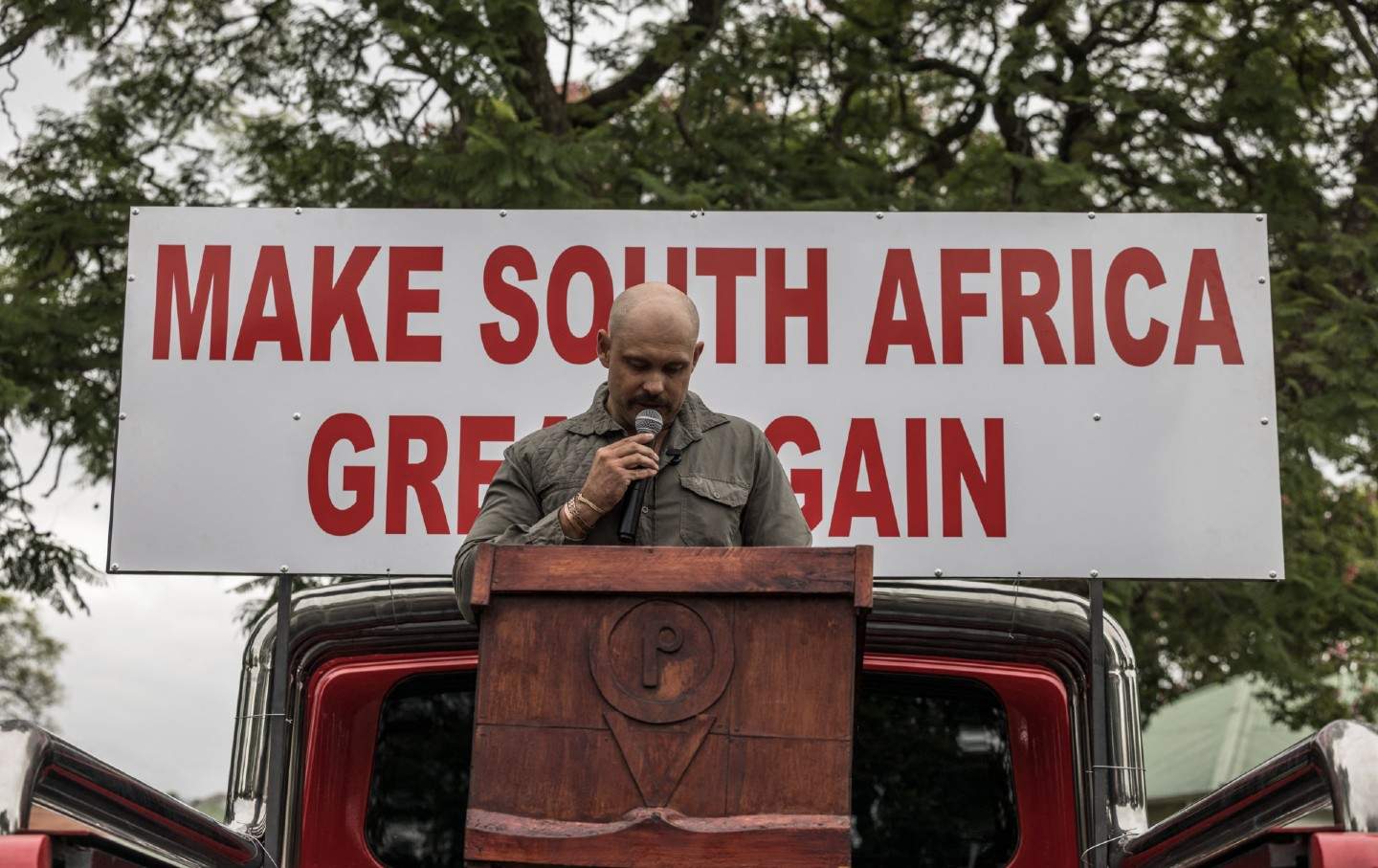
Why Trump Is Right to View South Africa as a Threat Why Trump Is Right to View South Africa as a Threat
The country’s Constitution gives its citizens more than a right to the pursuit of happiness. But attempts to redeem that commitment to justice have enraged American reactionaries....
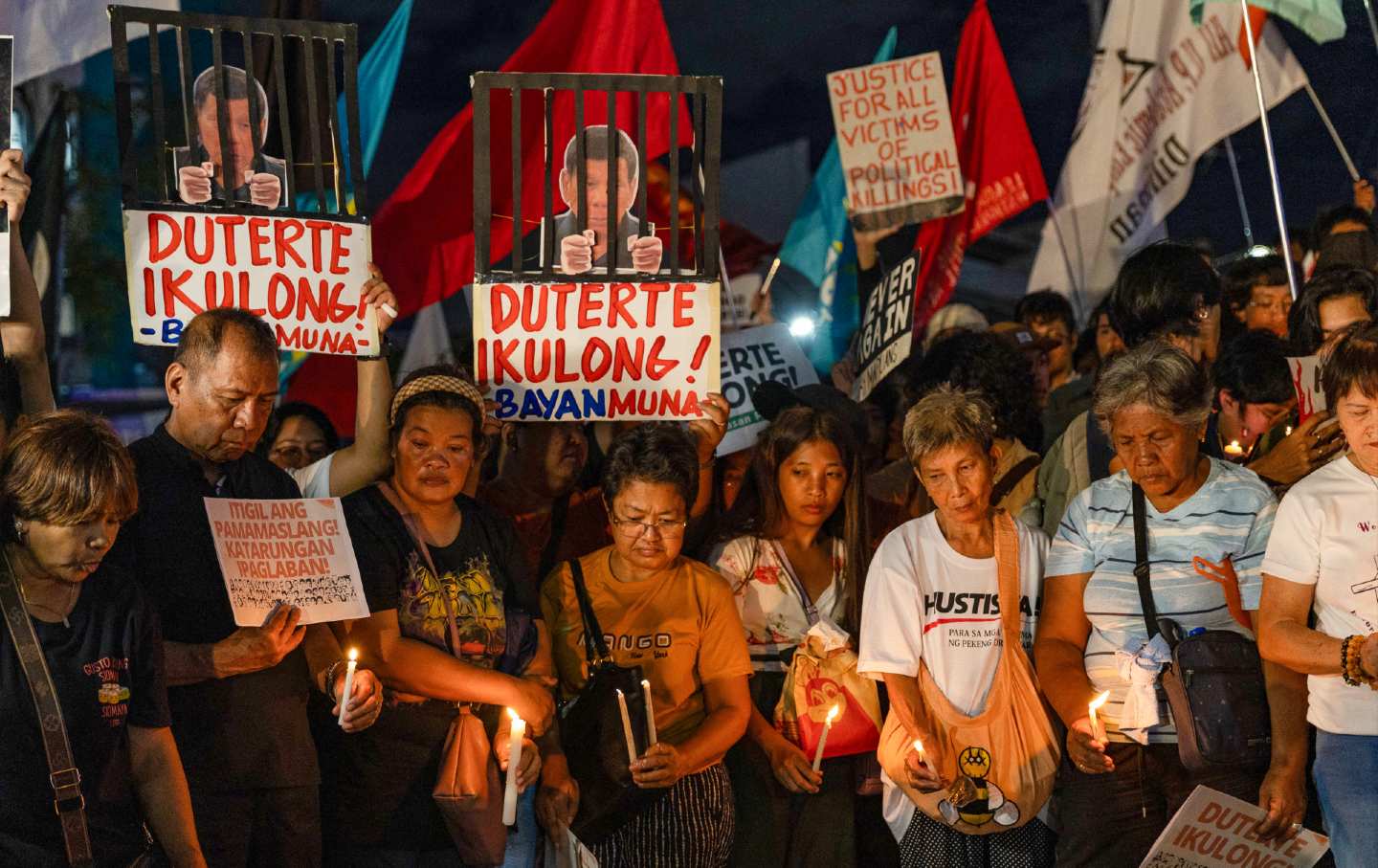
Rodrigo Duterte Used the Philippines’ US-Made Constitution Against Itself Rodrigo Duterte Used the Philippines’ US-Made Constitution Against Itself
The autocratic spectacle of Duterte’s presidency should be a warning to the United States.
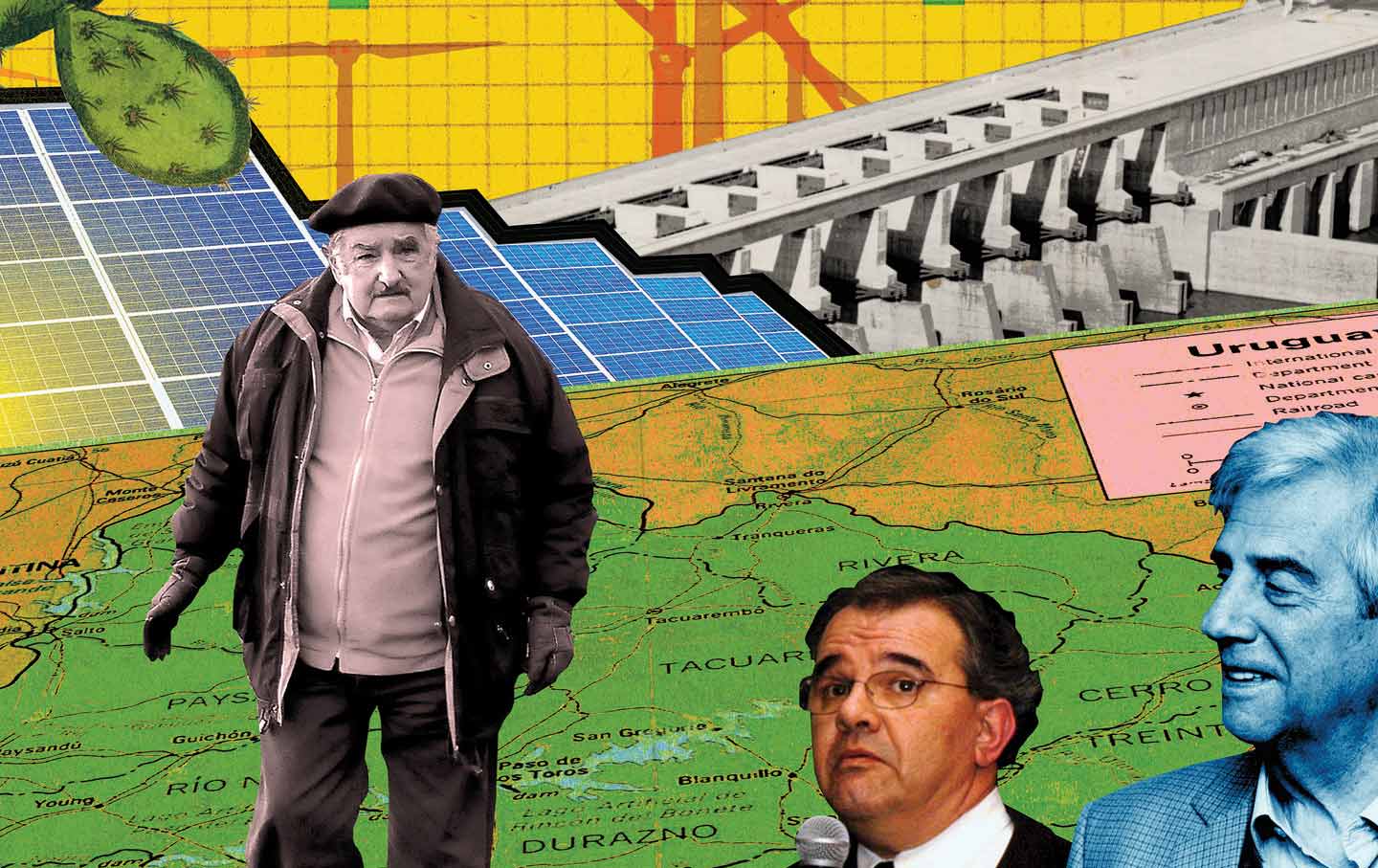
Going for Green: Uruguay’s Renewable Energy Revolution Going for Green: Uruguay’s Renewable Energy Revolution
With no fossil fuel reserves to rely on and domestic demand rising, the country had to get creative—or go broke just trying to keep the lights on. Here’s how they did it.
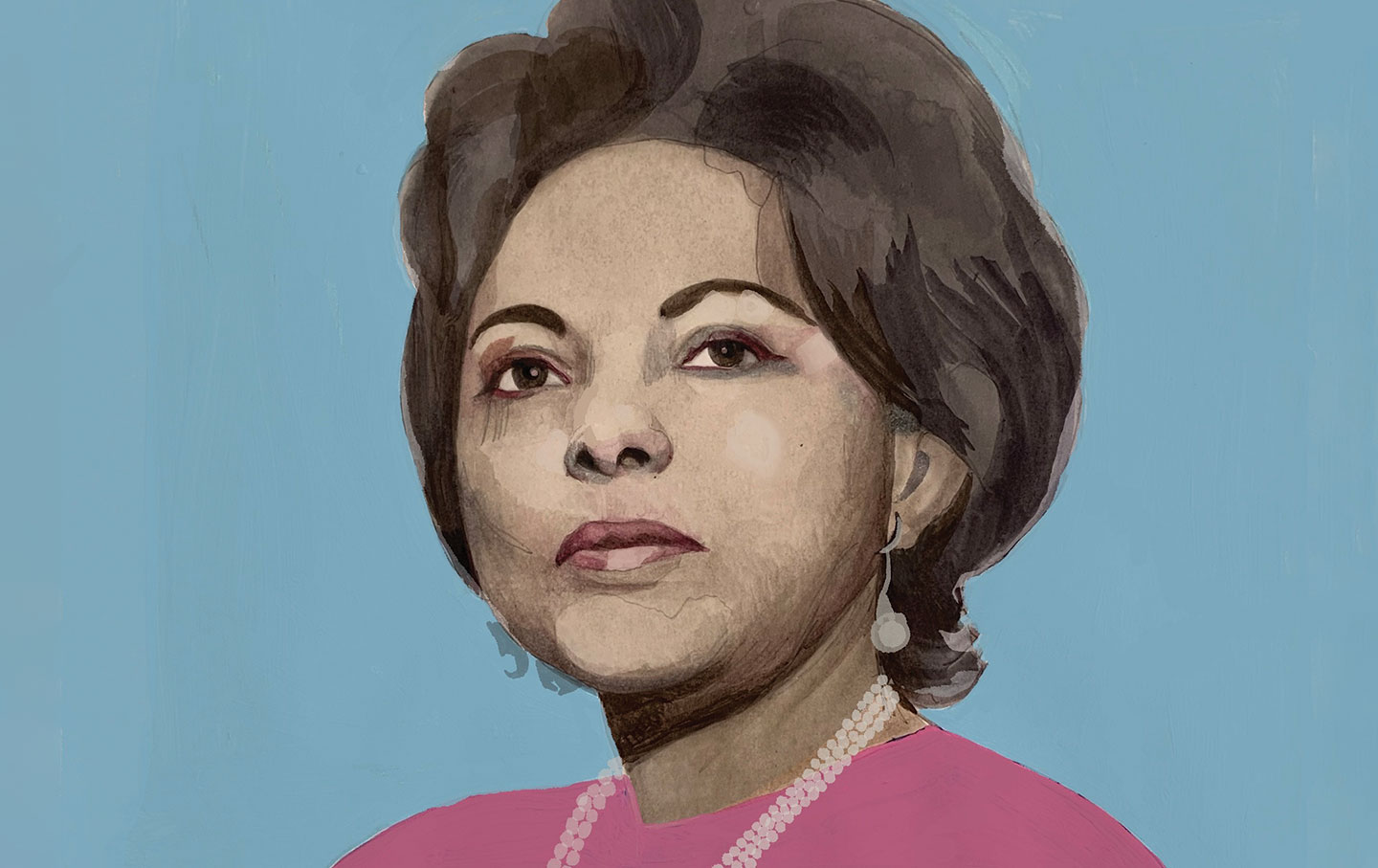
Andrée Blouin’s Revolutionary Lives Andrée Blouin’s Revolutionary Lives
The African political leader’s autobiography, My Country, Africa, also offers a larger story of empire, oppression, and resistance on the continent.

Life in Cuba Under Sanctions Life in Cuba Under Sanctions
Ordinary Cubans are trapped in a vicious circle of government mismanagement exacerbated by the US embargo.
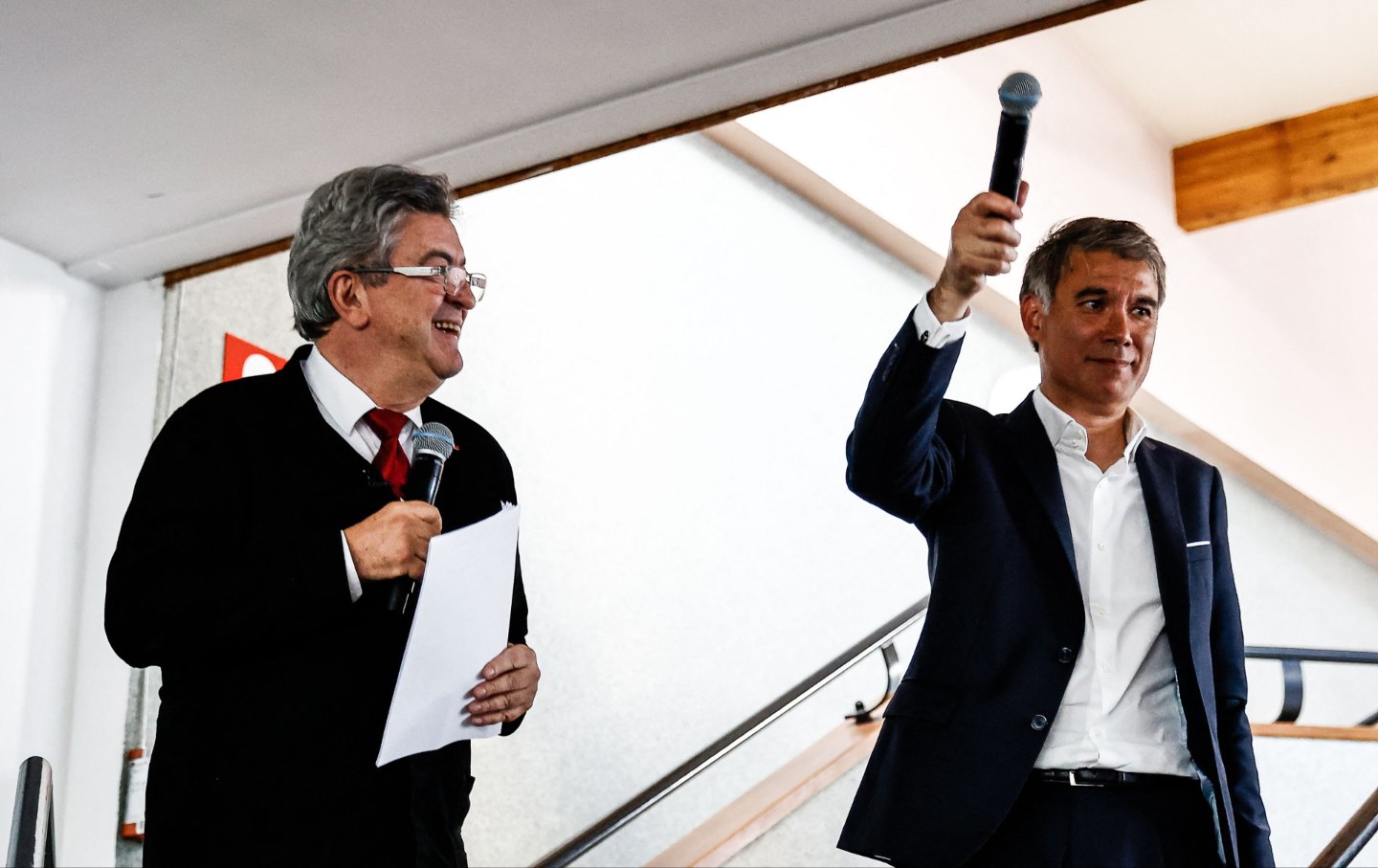
The Crisis Engulfing the French Left The Crisis Engulfing the French Left
The New Popular Front alliance looked like the best hope the left had against Macron and Le Pen. But after months of internal conflicts, it’s on the brink of collapse.


